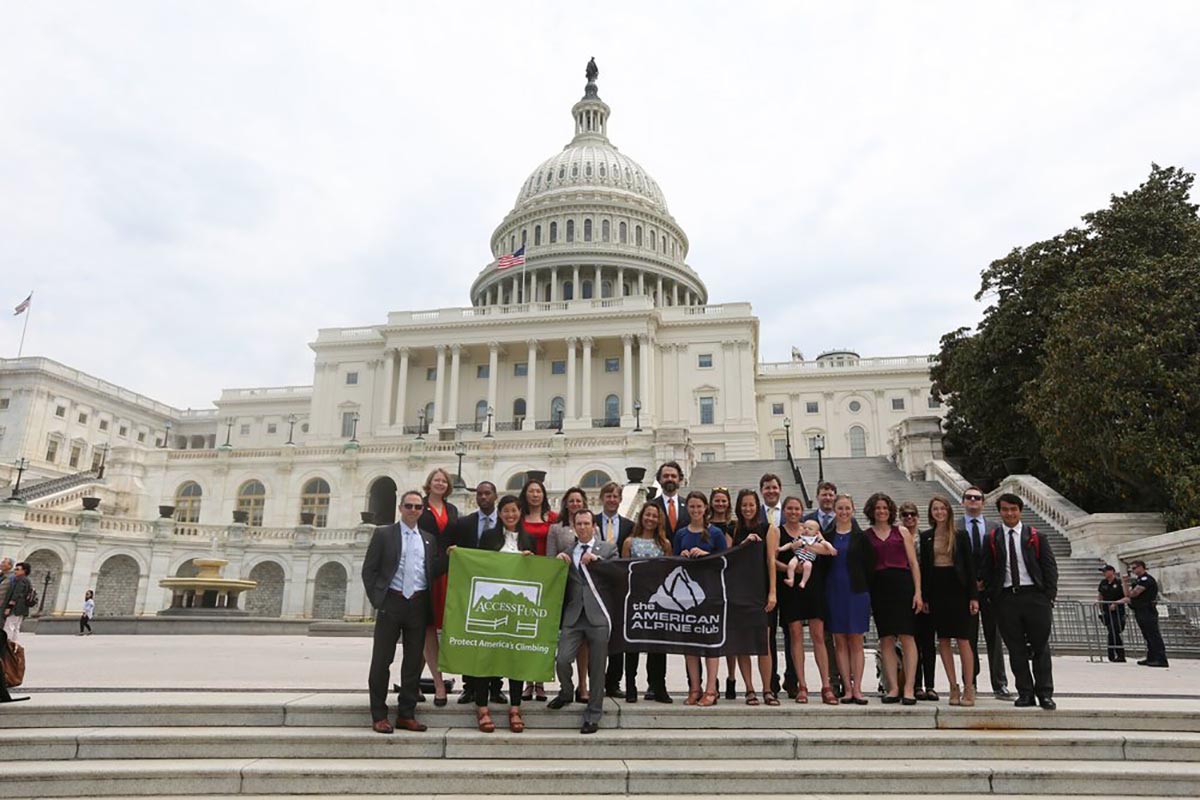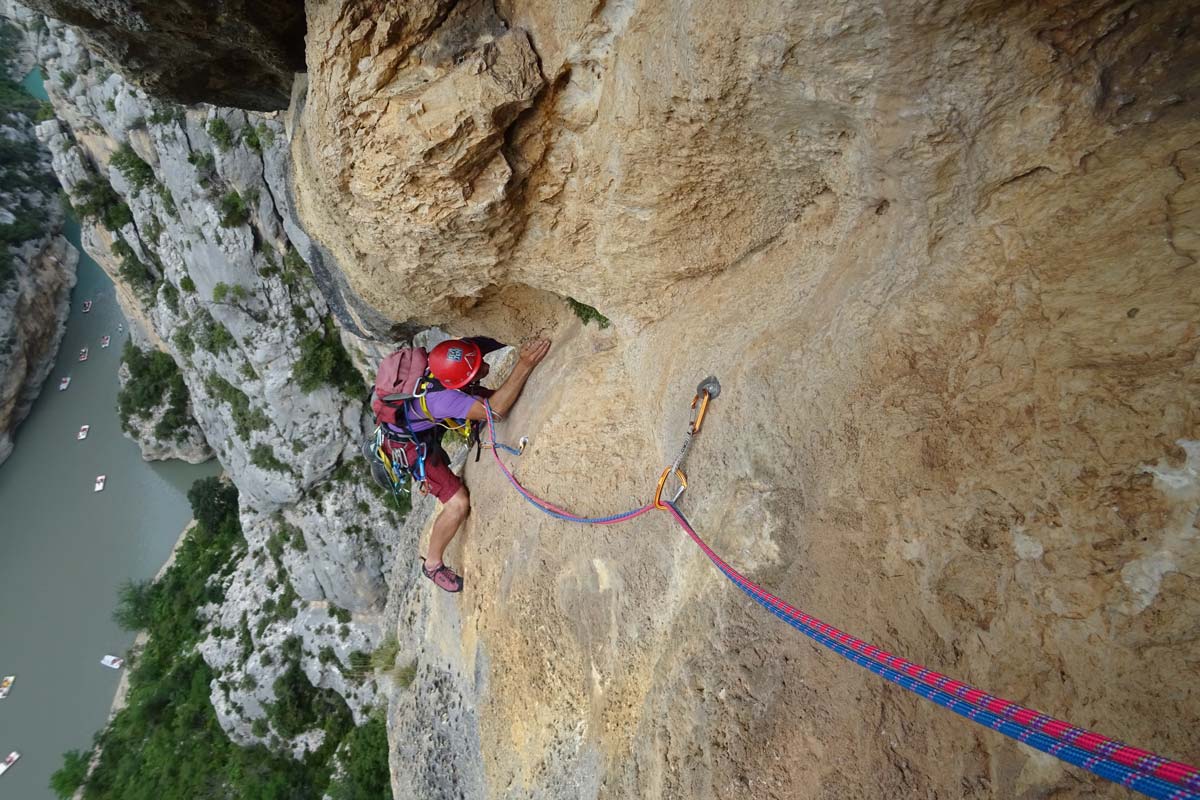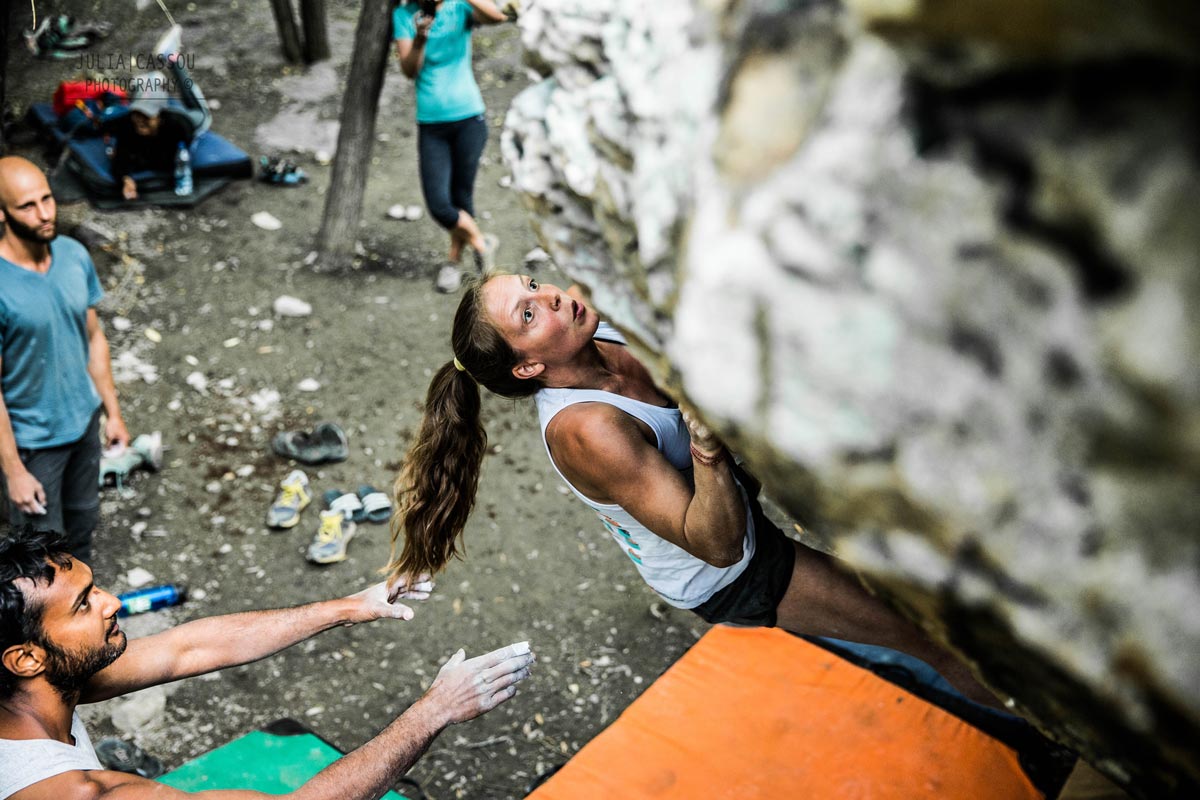Climb the Hill began in 2016 to give climbers a stronger voice in Washington, D.C.. Co-hosted by The American Alpine Club and the Access Fund, the event brings together more than 60 professional climbers, industry leaders and partner organizations to advocate for public lands and a robust outdoor recreation economy. The relationships we develop with lawmakers are integral in shaping public policy issues that affect the climbing and broader outdoor community.
Climbers represent a politically diverse constituency and are united by our shared passion for the public lands where we practice our craft. As climbing grows in popularity, we have become an increasingly influential force for public policy issues. “Climbers have a vested interest in what happens in D.C., and showing up to make our voice heard is key to the future of the sport,” say Brad Brooks, former AAC Policy Committee member. “By working together with industry and partner organizations, we form a stronger united front to voice the climbing community’s concerns to our representatives.”
2018 Climb the Hill
The third annual Climb the Hill brought together more than 60 athletes in 62 meetings on the Hill.
On 10 May, an elite team of professional climbers, outdoor industry leaders, and grassroots partners charged the Hill to advocate for outdoor recreation and improved climbing management, with a specific focus on the Antiquities Act, the Land Water Conservation Fund and the Recreation Not Red-Tape Act.
Once on the Hill, advocates broke into multiple teams of regional constituents. Altogether, groups met with more than 60 congressional offices (30 meetings included members of Congress) as well as senior staff from the US Forest Service and National Park Service. Some of these meetings were with policymakers who already shared the advocate’s priorities; many were with senators or representatives who did not.

Climbers prioritized storytelling to deliver points, describing their experiences on our public lands and how wild places have shaped their lives and careers. They also pointed to the power of the outdoor recreation economy, which depends upon access to public lands. Outdoor recreation generates $887 billion in consumer spending annually and supplies 7.6 million American jobs, as reported by Outdoor Industry Association. This data gives climbers a solid foothold in the halls of Congress.
Climb the Hill meetings helped move the needle on several policy issues and inspired congressional office to take action. For example, a major success was after hearing from climbers, Senator Angus King (I-ME) signed on as a co-sponsor of the Recreation Not Red-Tape Act (RNR). RNR is a bipartisan effort to expand recreation opportunities on public lands. It would make it easier for non-profit organizations, outfitters and guides to help people get outside, develop an appreciation for wild places, and care for our nation’s public lands, forests, parks, and rivers. As professional climber Majka Burhardt said, “We’re all really lucky. We get to get outdoors, and that is a privilege. We all would be better served to go and to reach out to get more people involved in the outdoors, because that’s how we’re going to keep growing the importance of the outdoors.”
The “star-power” of climbers like Burhardt, Alex Honnold, Margo Hayes, Sasha DiGiulian, Lynn Hill, Tommy Caldwell and many others propelled efforts into the view of mainstream climbers and outdoorists. In addition to climbing celebrities, grassroots organizations such as Brothers of Climbing, Brown Girls Climb, and Latino Outdoors added the voices of communities of color and contributed valuable perspectives. Shelma Jun of FlashFoxy recently shared in a post that she’s “Heading back to NYC with a renewed determination to continue to let our elected officials know that we want our public lands to be protected, and that the ‘we’ includes women, POC, adaptive, indigenous and queer climbers.” A key takeaway from the event was that to succeed, climbers must advocate for access to public lands for all, including those who have been historically marginalized.
“Thank you to the climbing community for helping lead the charge in advocacy for our public lands and outdoor recreation,” wrote Forrest Shearer, a professional outdoor athlete who participated in Climb the Hill, “There is still much to do, but I’m hopeful [that] by showing up and sharing our stories, we can affect change.”
Article courtesy of American Alpine Club.
Media Coverage:
The Guardian
Alpinist
Rock and Ice
All images: Copyright: Stephen Gosling



